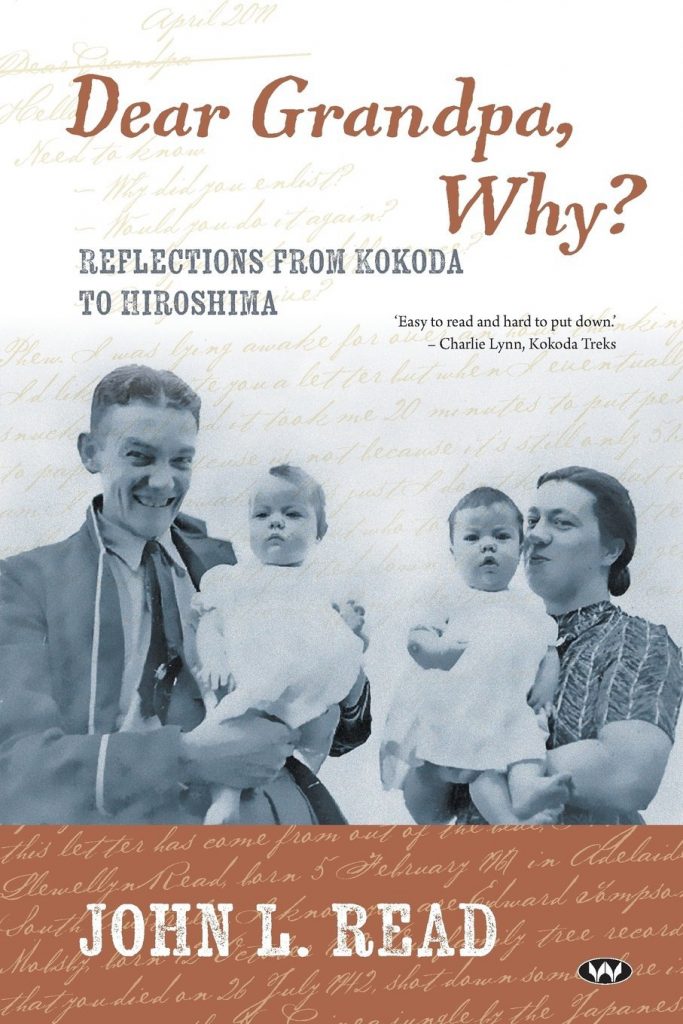This is a gem of a book. It describes John Read’s revelations as he uncovers the story of his grandfather Eddie Mobsby, a young Australian pilot on attachment to a USAF bomber unit, who was lost in action in a B-25 over Papua New Guinea in1942. Read’s interest is sparked in 2011 by photographs shown to him by his mother. They raise questions in his mind, not only about his grandfather but also about the broader context of Australia’s war with Japan. His book recounts the factual discoveries made during his investigations but also describes the emotional and intellectual conclusions he reaches in the process, most of which he has not previously considered. His quest for facts about his grandfather therefore becomes interwoven with his reflections on Australia’s war with Japan, and the combination makes for interesting and thought-provoking reading.

Paperback 192pp RRP: $24.95
To marshal his thoughts initially, Read writes an imaginary letter to his ‘Grandpa’ in which he asks several fundamental questions. Given that he was 32 years of age with two young daughters did he enlist to fight Hitler in Europe or to prevent Japan from invading Australia; would he do it again; did his involvement make a difference; did he survive the crash given that the crew were posted as Missing in Action? John Read’s quest for answers leads him to discussions with American relatives of Eddie’s bomber crew, the village of Isogo in Papua New Guinea to locate Eddie’s grave and the site of his crashed bomber, to Canberra and the War Memorial, to Osaka to meet a Japanese family on a similar quest, and finally to a medal ceremony with Commander-in-Chief USAF Pacific. The book is enlivened throughout by fascinating snippets of detail which are in themselves interesting and which bring richness and colour to the story.
However, in many ways it is the philosophical reflections on war and the need for it to be avoided that are the important messages from the book. John Read tackles these in a clever conversational style, which he weaves into the fabric of the story as it unfolds. For example, his discussions with the Japanese family during a visit to Osaka cause him to reflect on the necessity for dropping atomic bombs on Hiroshima and Nagasaki. He handles this complex topic with skill and sympathy, describing the arguments from both sides. In the process, he highlights the domineering role of the Japanese military who at the time seemed disinclined to surrender despite the horrendous casualties caused by the incendiary bombing of Tokyo. He explores the commonly held view that the Japanese were the villains in the war, providing historic context in the process. During these deeper discussions, he is careful with his words and expresses himself clearly.
In summary, this is not a history book yet it contains interesting historical facts about Papua New Guinea and Japan’s war efforts at the time. ‘Dear Grandpa, Why?’ is a charming and well-written book. It is insightful, thought provoking and extremely enjoyable. As Charlie Lynn, Kokoda Tracks, said in his excellent Foreword, “… it is easy to read and hard to put down.” I thoroughly enjoyed it, found it hard to put down and strongly recommend it.
Reviewed for RUSIV by Ian Freer, January 2019
Contact Royal United Services Institute about this article.






